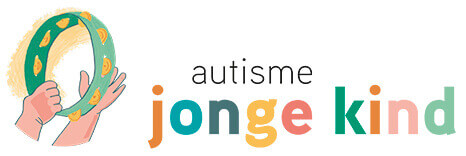
Wait and see, or take action?
Some developmental disorders, such as autism (ASD), reveal themselves in a child at a very young age. It is therefore important to pay attention to issues in your child's development, especially when he or she is still young. For young children, relatively "light" help is often enough to positively influence their development.
Developmental problem or not?
There are average ages at which most children can do certain things. (see also: overall development of children). At the same time, each child is unique, and each child develops at his or her own pace. Therefore, it is sometimes difficult to determine whether developmental problems will resolve themselves, or whether help is needed to spur development.
Often parents, as well as professionals, are inclined to wait and see. This can be appropriate, because children can indeed suddenly have a spurt in their development. In that case, problems turn out to have been temporary. But sometimes, by waiting, precious time is unintentionally lost and problems increase. Whereas for young children, relatively "light" help is often enough to positively influence their development.
Why should you take action early?
Three reasons for why you should take action at the first signs of problems in your child's development are the following:
- Young children learn quickly
The brains of young children (especially those under 3) are more flexible than those of older children or adults. Young children therefore learn new skills more easily. - Areas of development are closely interconnected
In the first four years of life, children grow rapidly and in all different areas of development at the same time. They develop in areas of motor, emotional, cognitive, social, language and speech skills. These areas of development are strongly intertwined. New skills in one area also influence the development of other areas. Learning to walk, for example, is a motor development. But it also affects the development of understanding things (cognition). As your child's world expands, it can discover more. Conversely, a problem in one area can also have a negative effect on other areas (see example).Example
If your toddler has difficulty crawling or gripping things, he or she experiences the world differently than a child who moves around with ease. This also immediately affects the development of understanding (cognition). Because by moving around and grabbing things, children get to know, for example, the difference between hard and soft or hot and cold. They learn about shapes, structures and how things feel. When children touch things, parents often tell them what it is: "That's the heater. it's warm." Or: "Whoa, that pillow is nice and soft, isn't it?". If your child explores less, you as a parent also have less reason to name new things. So in this way, the motor 'problem' has an impact on the understanding of the world and language development. - You and your child influence each other
Children can react sensitively to tensions within a family. Additionally, developmental problems in a child can create uncertainty and tension for the parents. You may then feel powerless in the interaction with your child. This way, problems in the relationship between parents and child can arise, or be reinforced.
What action can be taken if your child has (suspected) autism?
So, it may be important to take action if you think your child is developing differently than other children and/or if you suspect your child has autism. For this, you can follow the steps below:


